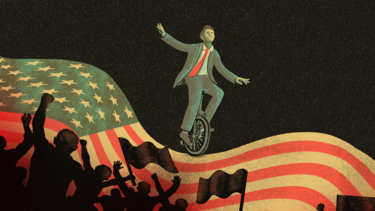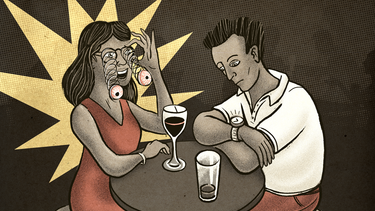Behavioral
How Gambling Is Transforming the Experience of Sports
We asked Professor Nathan Novemsky, who has examined the psychology of gambling in multiple studies, how the ubiquity of betting is changing the way we watch sports.

Beyond Resolutions: Research-Based Suggestions for 2022
We asked faculty from the Yale School of Management for their advice—philosophical, professional, and personal—for our readers for the coming year.

Are Leaders Rewarded for Taking Risks?
In a new study, Yale SOM’s Oriane Georgeac, Gerben van Kleef of the University of Amsterdam, and their co-authors find that in certain situations, risk-taking can strengthen a leader—but it can also backfire.

How Awards for Evaluators Can Reduce Gender Bias
Tristan Botelho and his co-author found that once recognized with Yelp’s Elite label, reviewers demonstrate less gender bias in their reviews. Workplaces could achieve a similar effect by subjecting managers’ hiring and promotion decisions to stronger scrutiny.

Numbers, Not Narratives, Remedy Misperceptions of the Racial Wealth Gap
A series of studies co-authored by Yale SOM’s Michael Kraus have shown that Americans vastly underestimate the wealth gap facing Black Americans. The latest research shows that detailed data is more effective than personal narratives in improving their understanding.

A Man and a Woman Walk into a Bar: How Gender Changes the Perception of a Bad Joke
Yale SOM’s Taly Reich has found one situation in which women, rather than men, are more likely to get the benefit of the doubt: when they tell jokes that fall flat.

Could Be Worse: When You See Others Losing More, You’re More Likely to Take Risks
What induces people to take greater risks in certain situations—such as sitting at the blackjack table in a glitzy casino? A new study from Yale SOM’s Nathan Novemsky and Guy Voiche reveals that we experience losses as less painful when we see examples of bigger losses.

Now It’s Personal: How Knowing an Ad Is Targeted Changes Its Impact
A consumer’s knowledge that an advertisement has been tailored to their interests changes how they respond, according to a new study co-authored by Yale SOM’s Jiwoong Shin. Firms evaluating marketing strategies should factor consumers’ inferences about targeted ads into their advertising decisions, Shin says.

What Separates the Ideas that Endure from Those That Fade?
For a study of the evolution of management concepts, Prof. Balázs Kovács and his co-author tracked keywords in 90 years of Harvard Business Review articles. Their conclusion: concepts get an initial boost from being similar to popular ideas, but need to distinguish themselves to last.

A Key Factor in Well-Being: Others’ Apparent Wealth
Money may not lead to happiness, but according to a new study co-authored by Yale SOM’s Michael Kraus, our perceived wealth and status relative to others does affect how happy we are.

Advice for a Better 2021—According to the Research
We asked faculty with expertise in psychology, entrepreneurship, healthcare, economics, and more for their best ideas to bring the lessons of the last year to the next.
